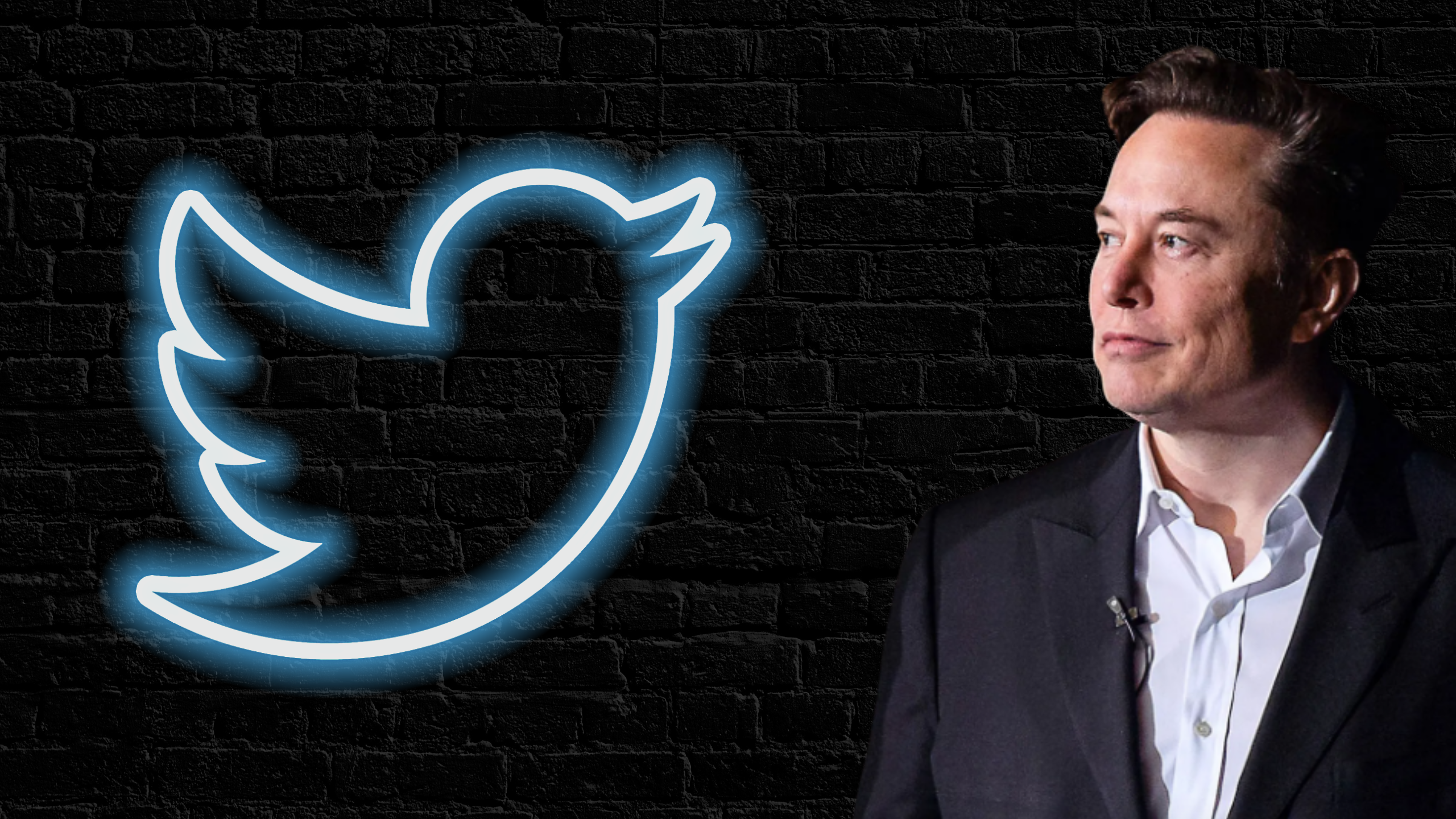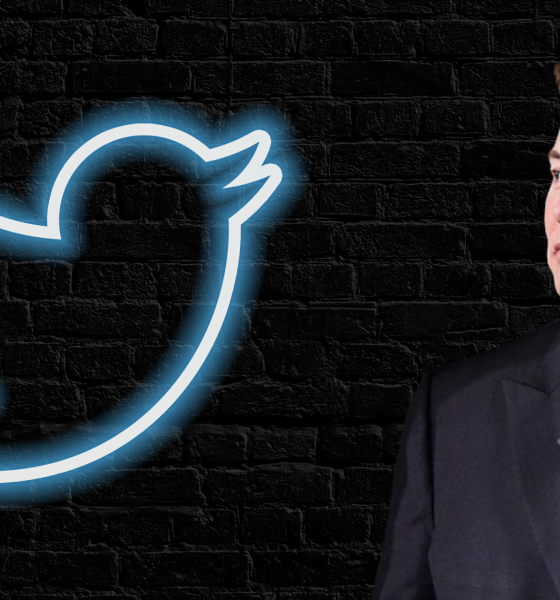Following the acquisition of Twitter by Elon Musk, many companies have paused or stopped their advertising campaigns. A report from Media Matters for America said that over half of Twitter’s top 100 advertisers are no longer advertising on the platform.
In September, Twitter promoted ads alongside child pornography. Some of the brands called Twitter out on this and either paused or suspended their ad campaigns.
Some advertisers that were not affected by Twitter’s accidental promotion of ads with child pornography continued to advertise with the platform. And some of these brands who did so paused their campaigns when Elon Musk took over.
A key issue is that in the past, Twitter has been lenient toward child predators, yet advertisers have been advertising with the platform for many years.
It wasn’t until Elon Musk bought the platform that Twitter made removing child sexual exploitation material priority number one. Some of these advertisers are only now pausing or suspending their ad campaigns after Elon Musk took over.
Removing child exploitation is priority #1. Please reply in comments if you see anything that Twitter needs to address.
— Elon Musk (@elonmusk) November 24, 2022
A Twitter spokesperson said that the platform “has zero tolerance for child sexual exploitation,” but there is a case where the platform refused to remove videos of two children being abused, and it took the U.S. Department of Homeland Security to step in for Twitter to remove the content.
The Media Matters report stated that Elon Musk “has continued his rash of brand unsafe actions — including amplifying conspiracy theories, unilaterally reinstating banned accounts such as that of former President Donald Trump, courting and engaging with far-right accounts, and instituting a haphazard verification scheme that allowed extremists and scammers to purchase a blue check. This last move, in particular, opened the platform up to various fraud and brand imitations.”
There was no mention of Twitter’s new priority number one, which is the removal of child pornography from its platform. Additionally, many of these brands continued to advertise while Trump was president and active on the platform.
Comparison.
The two following lists show companies that stopped advertising when Elon Musk took over and companies whose ads were published alongside explicit and illegal content.
Companies That Stopped Publishing Ads When Elon Musk Bought Twitter:
- Abbott Laboratories
- Allstate Corporation
- AMC Networks
- American Express Company
- AT&T
- Big Heart Petcare
- BlackRock, Inc.
- BlueTriton Brands, Inc.
- Boston Beer Company
- CA Lottery (California State Lottery)
- CenturyLink (Lumen Technologies, Inc.)
- Chanel
- Chevrolet
- Chipotle Mexican Grill, Inc.
- Citigroup, Inc.
- CNN
- Dell
- Diageo
- DirecTV
- Discover Financial Services
- Fidelity
- First National Realty Partners
- Ford
- Heineken N.V.
- Hewlett-Packard (HP)
- Hilton Worldwide
- Inspire Brands, Inc.
- Jeep
- Kellogg Company
- Kohl’s Department Stores, Inc.
- Kyndryl
- LinkedIn Corporation
- MailChimp (The Rocket Science Group)
- Marriott International, Inc.
- Mars Petcare
- Mars, Incorporated
- Merck & Co. (Merck Sharp & Dohme MSD)*
- Meta Platforms, Inc. (formerly Facebook, Inc.)
- MoneyWise (Wise Publishing, Inc.)
- Nestle
- Novartis AG
- Pernod Ricard
- PlayPass
- The Coca-Cola Company
- The Kraft Heinz Company
- Tire Rack
- Verizon
- Wells Fargo
- Whole Foods Market IP
- Yum! Brands
Brands whose ads Twitter promoted alongside CSE Content.
There were over 30 brands affected, and the following list is just some of the brands that were reported to be affected.
- Dyson
- Mazda
- Forbes
- Walt Disney
- NBC Universal
- Coca-Cola
- Cole Haan
- a children’s hospital
- PBS Kids
A spokesperson for both Disney and Coca-Cola spoke out against Twitter promoting their ads alongside the CSE content, yet NBCUniversal confirmed that it asked Twitter to remove the ads associated with the content.
David Maddocks, brand president at Cole Haan, told Reuters that either Twitter fixes this or Cole Haan would do so, including by not buying Twitter ads. Mazda USA also said it would be prohibiting its ads from appearing on Twitter profile pages.
Although a handful of brands were upset over Twitter’s promoting ads along CSE, many of those brands that quit Twitter following Elon Musk’s acquisition were advertising up until recently. This includes both brands who had their content promoted alongside child pornography as well as those who didn’t.
For all of these brands who continued to advertise despite Twitter’s problem with CSE, the question remains: is advertising with Elon Musk worse than alongside the exploitation of children?
This is a question Eliza Bleu had for General Motors when the automaker first suspended its campaign after Elon Musk’s acquisition of the platform. Bleu is one of Twitter’s toughest critics who, up until recently, Twitter ignored. Elon Musk agrees with Bleu that CSE should be removed from the platform and has made it priority number one.
I would like to know too
— Elon Musk (@elonmusk) November 23, 2022
“Twitter has a long history of knowingly refusing to remove child sexual abuse material at scale. This issue has been covered by the corporate media and called out by governments around the globe.”
“Over 32 brands removed ads from Twitter when the Reuters pieces came out in September of this year because of child sexual abuse material on Twitter. I think that General Motors’ lack of concern over sexually abused children says a lot. Survivors buy cars too. There are more survivors out there than these brands might think,” Bleu told Teslarati in October.
Bleu told Teslarati on Sunday that these brands only care about the world’s most vulnerable when it is politically advantageous.
“Where was the outrage, pearl-clutching, and solidarity for the minor survivors sexually exploited on Twitter over the past 10+ years?”
“These brands only care about the world’s most vulnerable when it’s politically advantageous. They only care about the vulnerable populations who buy products, vote, and have money. It’s manipulative and gaslighting.”
“Thank you to the brands who took a stand against Twitter in September over this very real crime. My hope is that under the new leadership, the platform will continue to prioritize the removal of child sexual exploitation, and the brands that left in September can return knowing that specific issue will not negatively impact their brand as well as children around the globe.”
The question remains: Which is worse for Twitter advertisers: child sexual exploitation or Elon Musk?
Your feedback is welcome. If you have any comments or concerns or see a typo, you can email me at johnna@teslarati.com. You can also reach me on Twitter at @JohnnaCrider1.
Teslarati is now on TikTok. Follow us for interactive news & more. Teslarati is now on TikTok. Follow us for interactive news & more. You can also follow Teslarati on LinkedIn, Twitter, Instagram, and Facebook.

News
Tesla FSD (Supervised) fleet passes 8.4 billion cumulative miles
The figure appears on Tesla’s official safety page, which tracks performance data for FSD (Supervised) and other safety technologies.

Tesla’s Full Self-Driving (Supervised) system has now surpassed 8.4 billion cumulative miles.
The figure appears on Tesla’s official safety page, which tracks performance data for FSD (Supervised) and other safety technologies.
Tesla has long emphasized that large-scale real-world data is central to improving its neural network-based approach to autonomy. Each mile driven with FSD (Supervised) engaged contributes additional edge cases and scenario training for the system.
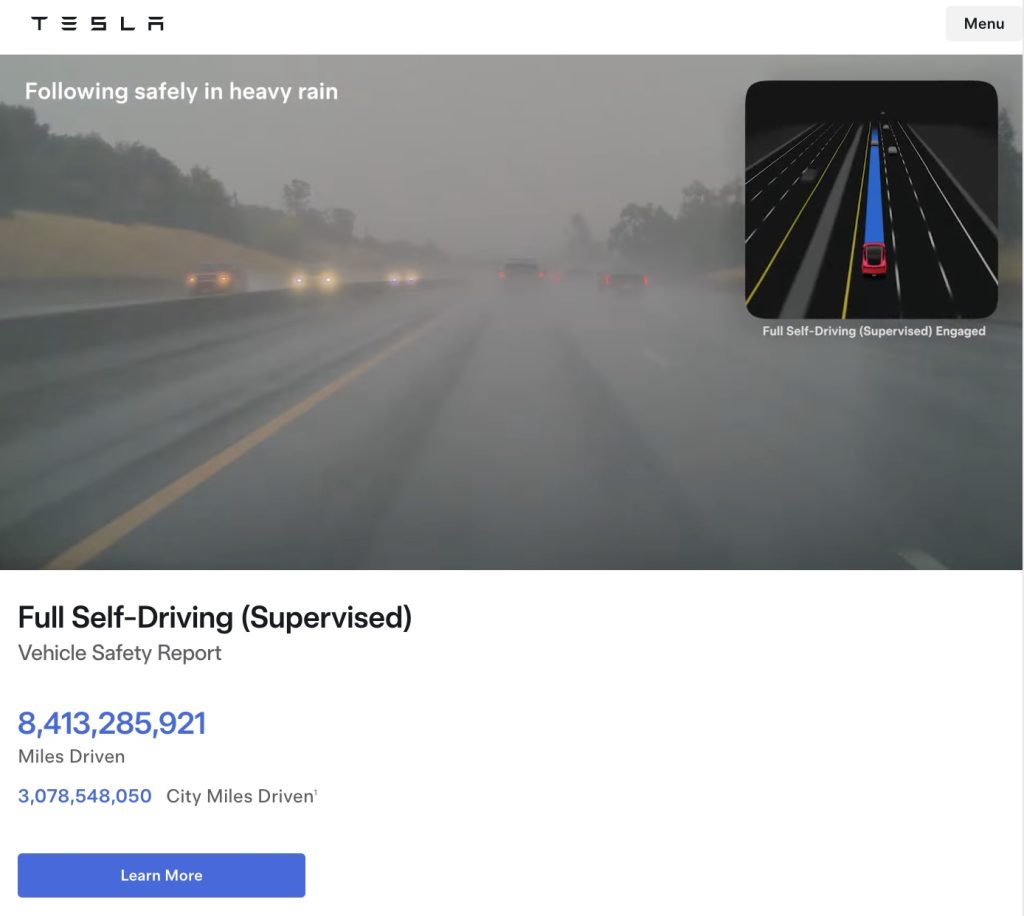
The milestone also brings Tesla closer to a benchmark previously outlined by CEO Elon Musk. Musk has stated that roughly 10 billion miles of training data may be needed to achieve safe unsupervised self-driving at scale, citing the “long tail” of rare but complex driving situations that must be learned through experience.
The growth curve of FSD Supervised’s cumulative miles over the past five years has been notable.
As noted in data shared by Tesla watcher Sawyer Merritt, annual FSD (Supervised) miles have increased from roughly 6 million in 2021 to 80 million in 2022, 670 million in 2023, 2.25 billion in 2024, and 4.25 billion in 2025. In just the first 50 days of 2026, Tesla owners logged another 1 billion miles.
At the current pace, the fleet is trending towards hitting about 10 billion FSD Supervised miles this year. The increase has been driven by Tesla’s growing vehicle fleet, periodic free trials, and expanding Robotaxi operations, among others.
With the fleet now past 8.4 billion cumulative miles, Tesla’s supervised system is approaching that threshold, even as regulatory approval for fully unsupervised deployment remains subject to further validation and oversight.
Elon Musk
Elon Musk fires back after Wikipedia co-founder claims neutrality and dubs Grokipedia “ridiculous”
Musk’s response to Wales’ comments, which were posted on social media platform X, was short and direct: “Famous last words.”
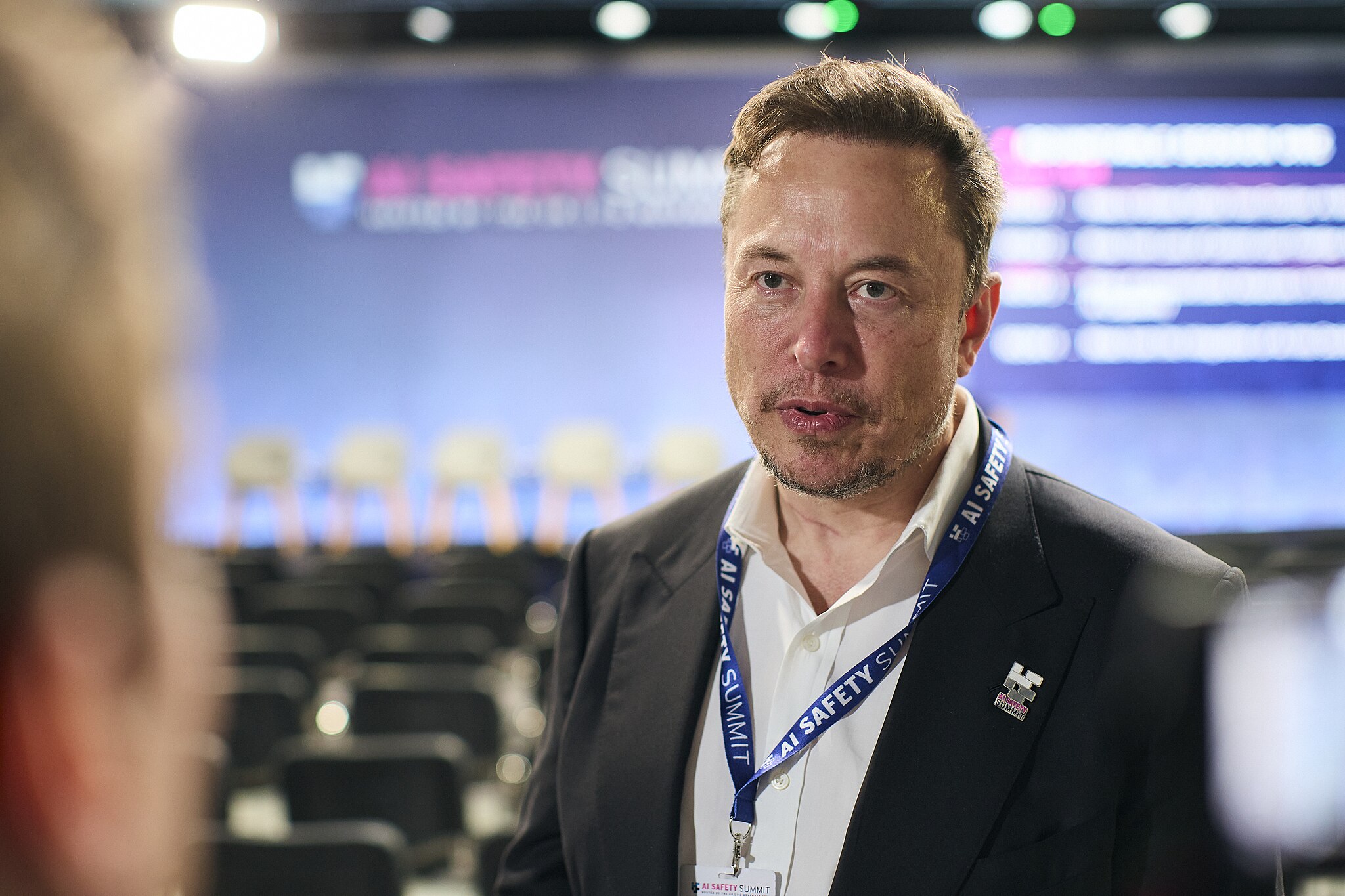
Elon Musk fired back at Wikipedia co-founder Jimmy Wales after the longtime online encyclopedia leader dismissed xAI’s new AI-powered alternative, Grokipedia, as a “ridiculous” idea that is bound to fail.
Musk’s response to Wales’ comments, which were posted on social media platform X, was short and direct: “Famous last words.”
Wales made the comments while answering questions about Wikipedia’s neutrality. According to Wales, Wikipedia prides itself on neutrality.
“One of our core values at Wikipedia is neutrality. A neutral point of view is non-negotiable. It’s in the community, unquestioned… The idea that we’ve become somehow ‘Wokepidea’ is just not true,” Wales said.
When asked about potential competition from Grokipedia, Wales downplayed the situation. “There is no competition. I don’t know if anyone uses Grokipedia. I think it is a ridiculous idea that will never work,” Wales wrote.
After Grokipedia went live, Larry Sanger, also a co-founder of Wikipedia, wrote on X that his initial impression of the AI-powered Wikipedia alternative was “very OK.”
“My initial impression, looking at my own article and poking around here and there, is that Grokipedia is very OK. The jury’s still out as to whether it’s actually better than Wikipedia. But at this point I would have to say ‘maybe!’” Sanger stated.
Musk responded to Sanger’s assessment by saying it was “accurate.” In a separate post, he added that even in its V0.1 form, Grokipedia was already better than Wikipedia.
During a past appearance on the Tucker Carlson Show, Sanger argued that Wikipedia has drifted from its original vision, citing concerns about how its “Reliable sources/Perennial sources” framework categorizes publications by perceived credibility. As per Sanger, Wikipedia’s “Reliable sources/Perennial sources” list leans heavily left, with conservative publications getting effectively blacklisted in favor of their more liberal counterparts.
As of writing, Grokipedia has reportedly surpassed 80% of English Wikipedia’s article count.
News
Tesla Sweden appeals after grid company refuses to restore existing Supercharger due to union strike
The charging site was previously functioning before it was temporarily disconnected in April last year for electrical safety reasons.
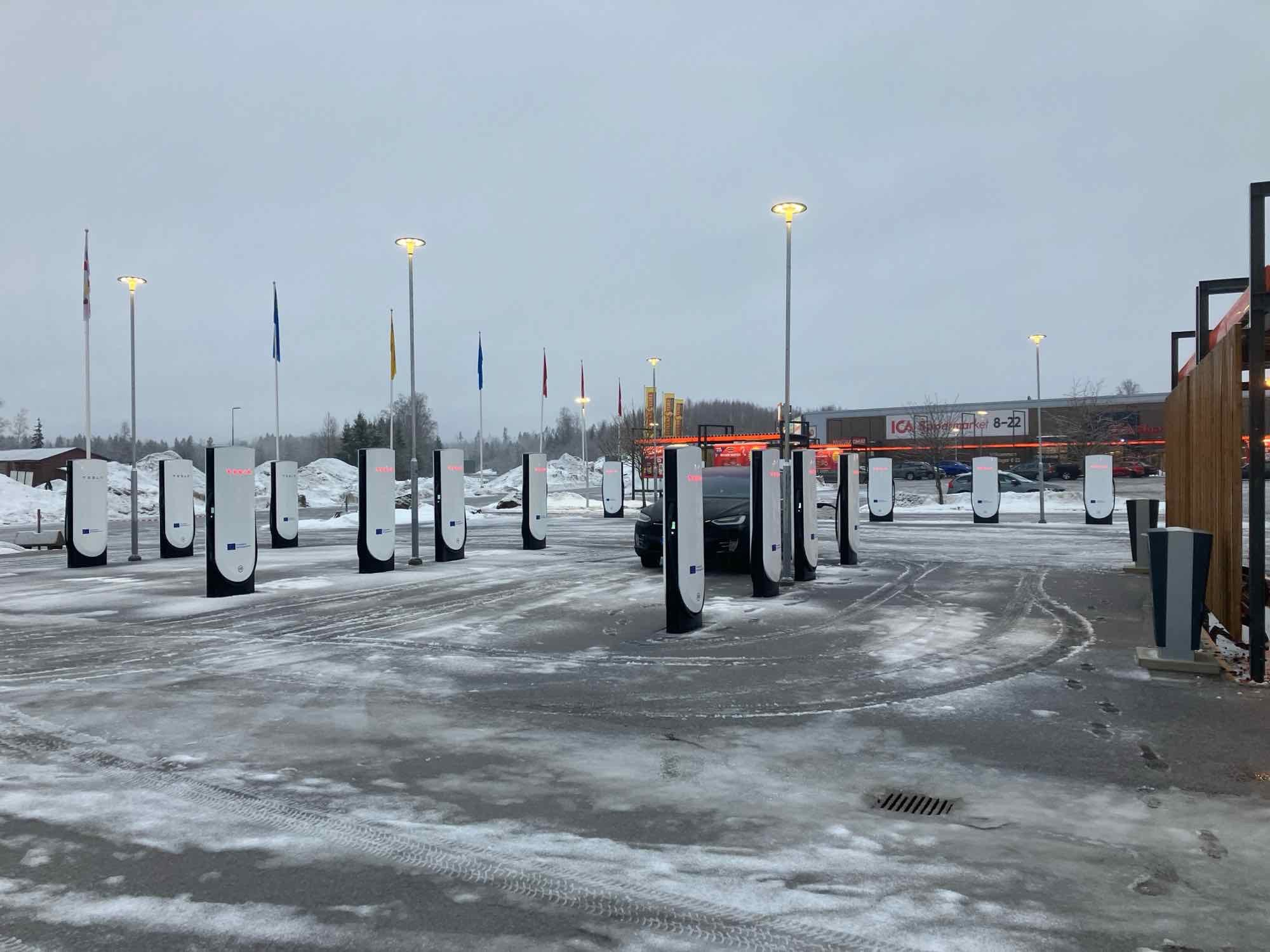
Tesla Sweden is seeking regulatory intervention after a Swedish power grid company refused to reconnect an already operational Supercharger station in Åre due to ongoing union sympathy actions.
The charging site was previously functioning before it was temporarily disconnected in April last year for electrical safety reasons. A temporary construction power cabinet supplying the station had fallen over, described by Tesla as occurring “under unclear circumstances.” The power was then cut at the request of Tesla’s installation contractor to allow safe repair work.
While the safety issue was resolved, the station has not been brought back online. Stefan Sedin, CEO of Jämtkraft elnät, told Dagens Arbete (DA) that power will not be restored to the existing Supercharger station as long as the electric vehicle maker’s union issues are ongoing.
“One of our installers noticed that the construction power had been backed up and was on the ground. We asked Tesla to fix the system, and their installation company in turn asked us to cut the power so that they could do the work safely.
“When everything was restored, the question arose: ‘Wait a minute, can we reconnect the station to the electricity grid? Or what does the notice actually say?’ We consulted with our employer organization, who were clear that as long as sympathy measures are in place, we cannot reconnect this facility,” Sedin said.
The union’s sympathy actions, which began in March 2024, apply to work involving “planning, preparation, new connections, grid expansion, service, maintenance and repairs” of Tesla’s charging infrastructure in Sweden.
Tesla Sweden has argued that reconnecting an existing facility is not equivalent to establishing a new grid connection. In a filing to the Swedish Energy Market Inspectorate, the company stated that reconnecting the installation “is therefore not covered by the sympathy measures and cannot therefore constitute a reason for not reconnecting the facility to the electricity grid.”
Sedin, for his part, noted that Tesla’s issue with the Supercharger is quite unique. And while Jämtkraft elnät itself has no issue with Tesla, its actions are based on the unions’ sympathy measures against the electric vehicle maker.
“This is absolutely the first time that I have been involved in matters relating to union conflicts or sympathy measures. That is why we have relied entirely on the assessment of our employer organization. This is not something that we have made any decisions about ourselves at all.
“It is not that Jämtkraft elnät has a conflict with Tesla, but our actions are based on these sympathy measures. Should it turn out that we have made an incorrect assessment, we will correct ourselves. It is no more difficult than that for us,” the executive said.
